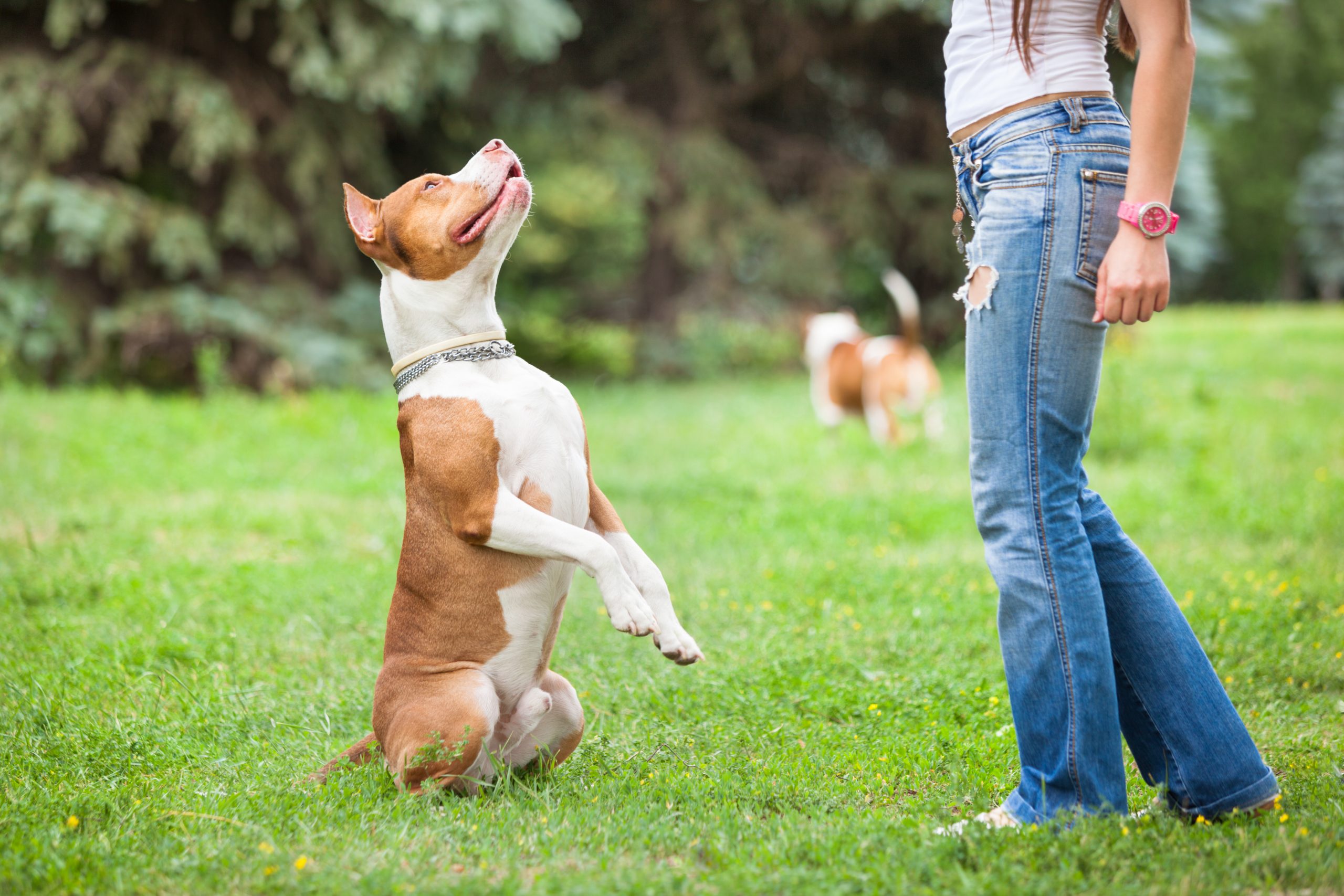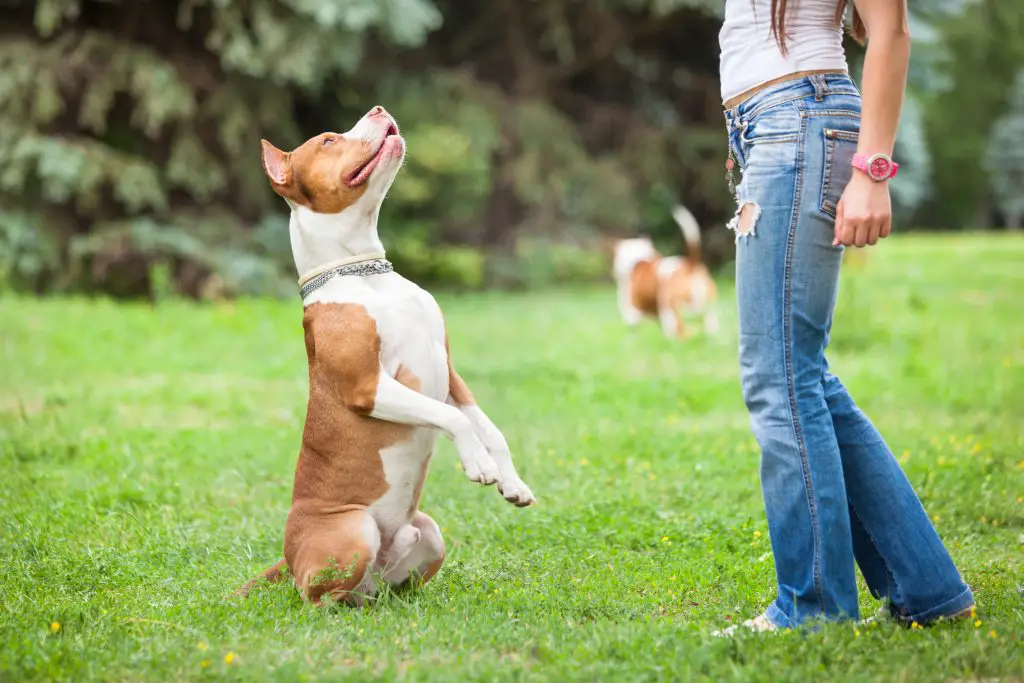Schutzhund Training – Improving The Intelligence Of Your Dog
Schutzhund training focuses on teaching a dog the skills required for police work, customs, and herding. (The term Schutzhund is German for “protection dog.”) Schutzhund training separates the exceptional work dogs from those who have less ability. The sport is a demanding physical and mental workout that assesses a dog’s ability in many areas necessary to a working dog. There are tens of thousands of competitors in each year’s competition.
German Shepherds usually come to mind when most people think of guard or police dogs, but many breeds are represented in the Schutzhund trials. Not all German Shepherds make good guard dogs even though they were initially considered the primary choice for working dogs. Today breeds such as Rottweilers, Dobermans, Airedale Terriers, Black Russian Terriers, Bouvier des Flandres, and more may be found competing in Schutzhund.
Necessary Traits For Shutzhund Training
To train a dog for police work or herding or any other type of work requires the dog to have certain innate traits. Some can be taught through Shutzhund training and other traits are simply there, or they are not. Schutzhund is a sport that separates those dogs whose training and personality have suited them to be working dogs.
Almost any dog can improve by training but when training a dog to be protective without being aggressive, the dog must first have the natural traits. The primary qualities required for a Schutzhund dog are a strong protective instinct, a strong bond with their trainer, a desire to work, intelligence, and courage. Not all these qualities can be taught and a dog who is not able to participate in Schutzhund can still be a good family pet.
Schutzhund Designations While any dog show might have a set of titles awarded to the dogs like best in breed, best in show or best in class, Schutzhund competition requires the dog first to be qualified with a title. The designations are Schutzhund1, Schutzhund2, and Schutzhund3. Schutzhund3 is the most difficult to attain.
However, before attaining any Schutzhund designation the dog must first pass a B test. This is a basic obedience and temperament test and any dog which exhibits undesirable traits such as aggression, fear, or distractibility is not permitted to go any further in the Schutzhund trials.
Dogs are tested on their ability to track with items placed in a large open field and the dog must track them and then notify the handler. The tracking assignments get more difficult as the dog advances through the various levels. For example, the Schutzhund1 tracking may consist of a very fresh scent while Schutzhund3 usually has an older scent to follow.
Response to stressful noises is also tested during the obedience trials as dogs are subject to occasional loud noises (such as gunshots). Dogs who are obviously afraid or nervous cannot proceed further. The protection portion of the trials tests not only the dog’s willingness to engage a threat upon command but also their willingness to follow their handler’s commands and release the decoy even when they are excited.
The Schutzhund trials and the training are highly demanding of both the dog and the handler. However, those canines able to compete are worthy to continue the working dog lines in their respective breeds, as well as fully capable of becoming highly useful working dogs. A dog who earns a Shutzhund designation has already accomplished far more than most.
Schutzhund Training Resources
Schutzhund training consists of training in the three phases: obedience, tracking, and protection. However, protection training usually requires more than one person. A “graduate” of this training is a balanced dog who will not only protect but will release upon command and protection training alone is insufficient to qualify a dog for the trials all three phases, obedience, and tracking are required.
There are many approaches to training any dog and that includes Schutzhund training. Because of the type of work a protection dog may be involved with (including police, border patrol, or customs), these dogs must be in top physical shape. In addition, because they are being taught protection techniques the dog must be suitable temperamentally for training.
Owners who are new to protection training should understand that it’s not about making a dog mean or highly aggressive. Instead, protection training encourages the animal to be protective and yet responsive to the handler’s commands even when highly excited.
A nervous dog may be unable to respond to the handler’s commands in what he feels is a threatening situation, and the result could be a severely wounded human, lots of emotional trauma for all concerned, and possibly a euthanized dog. It is important to evaluate the dog’s suitability for this type of training very thoroughly.
Schutzhund clubs are present in many areas and these can be invaluable resources for tips and techniques. Guidance from more experienced handlers can help the novice handler with their dog’s training from the early stages until they are ready for trials. On the other hand, not every dog is accepted into these clubs. Clubs may turn down dogs that seem unsuitable for training in order to protect everyone involved.
It is important to adopt any techniques you learn about your dog’s personality and abilities. Not all books written on the subject contain techniques that will work for everyone. Again, the support of a club can help the novice to avoid mistakes in training or oversight.
Schutzhund Breeding The dogs permitted to participate in Schutzhund trials are the best of the best and simply qualifying for these trials is an accomplishment. Working dogs in police departments, customs, and other areas are normally not allowed to breed.
These trials establish which dogs have the traits that make good working dogs and the progeny from these Schutzhund dogs keeps the traits needed to make good police dogs strong. Without the trials to identify working dog traits for breeders, the traits required for working dogs would be much rarer in any breed.
Because Schutzhund training requires so much commitment in time and energy, anyone, seriously considering training should probably contact other Schutzhund handlers in order to learn more about the sport. Working dogs remain strong and the bloodlines consistent in part because of the enthusiasts in this amazing and constantly changing sport.


